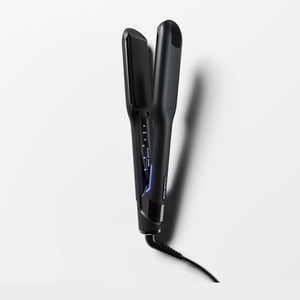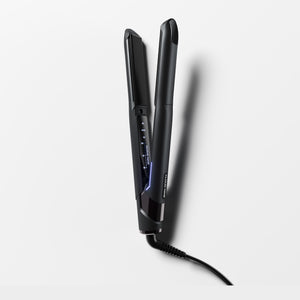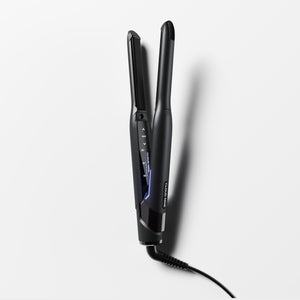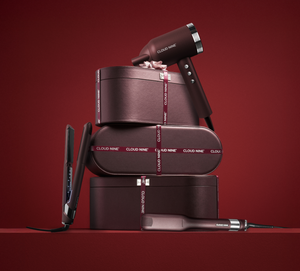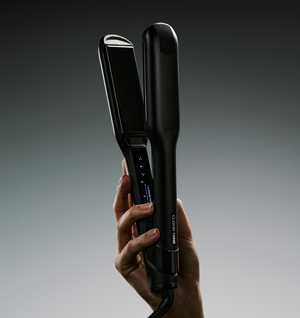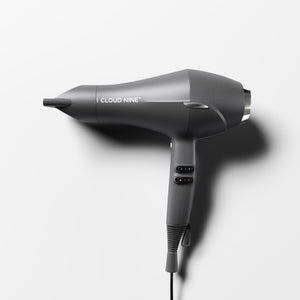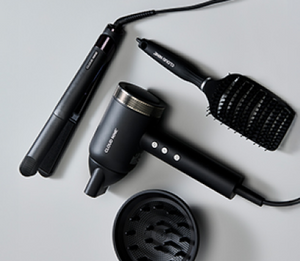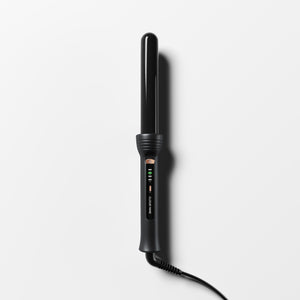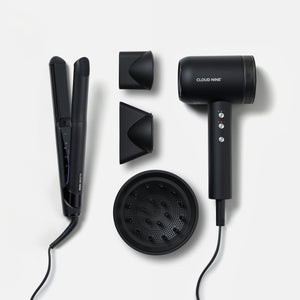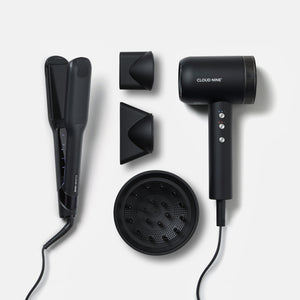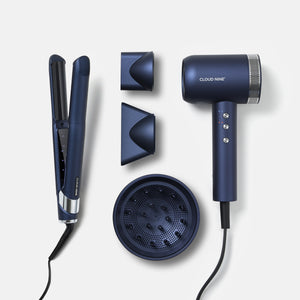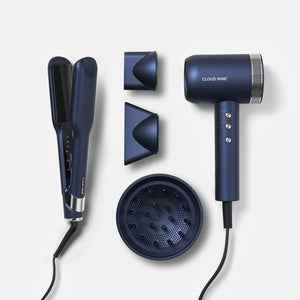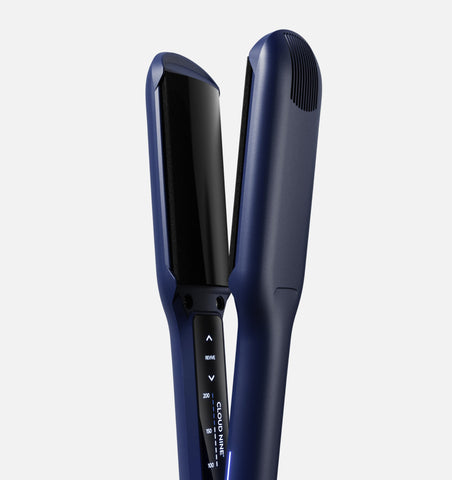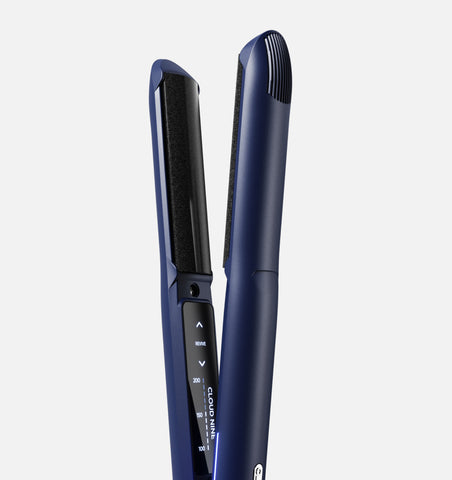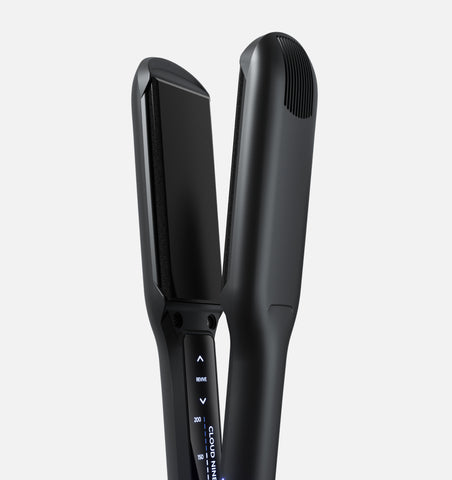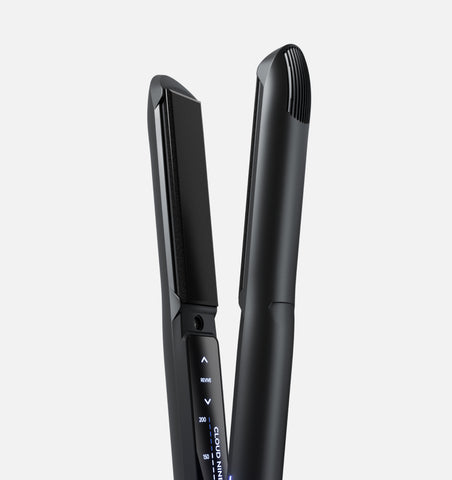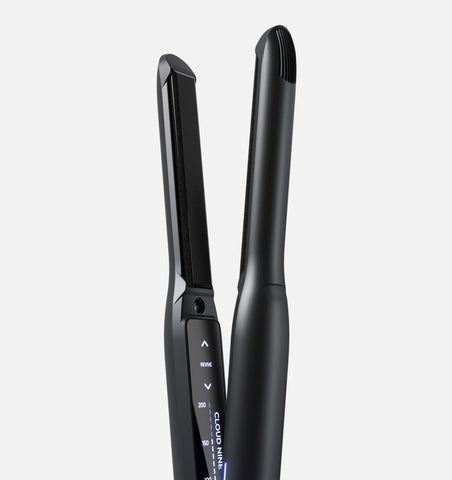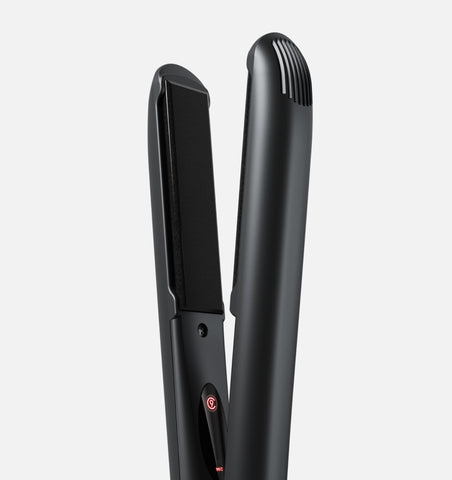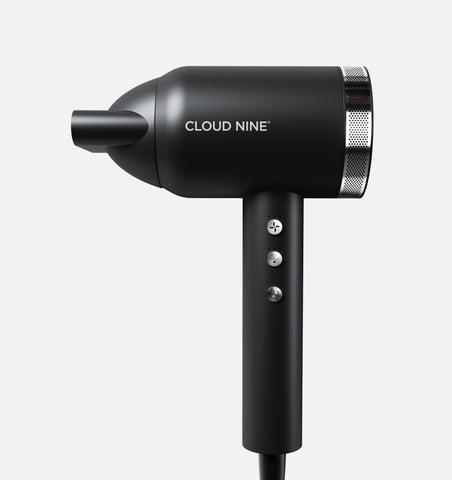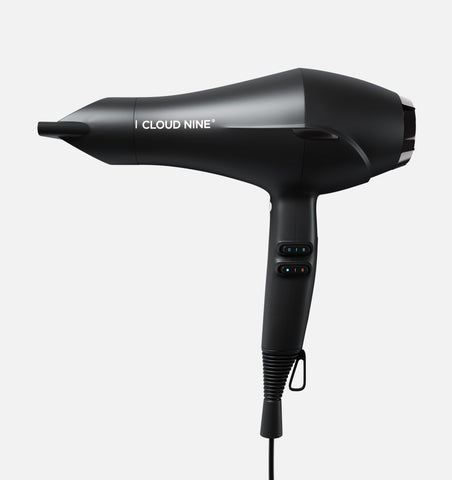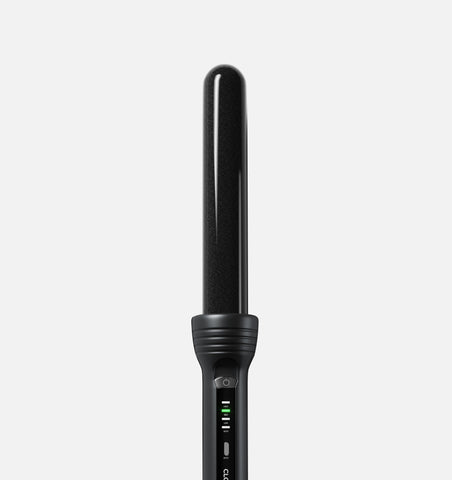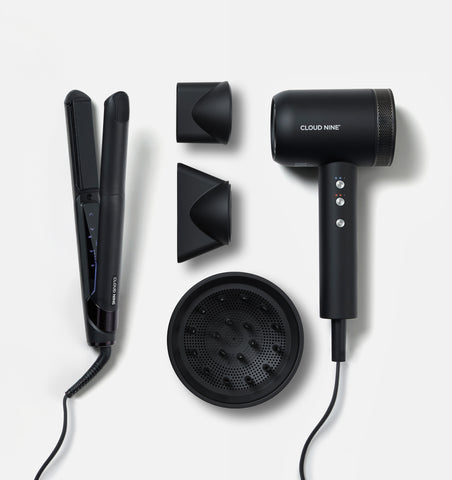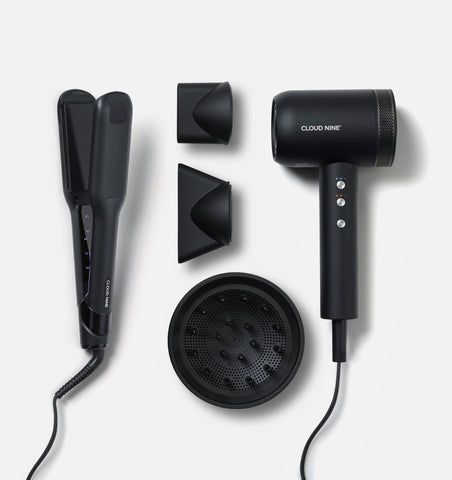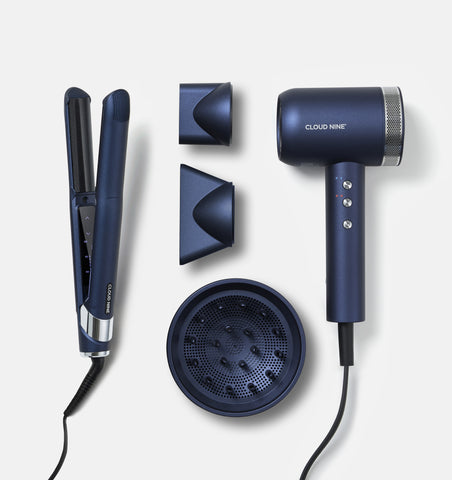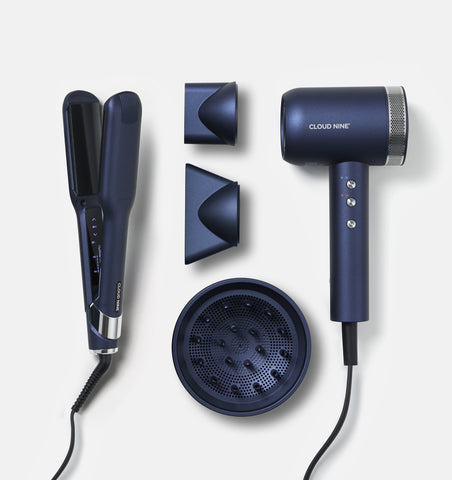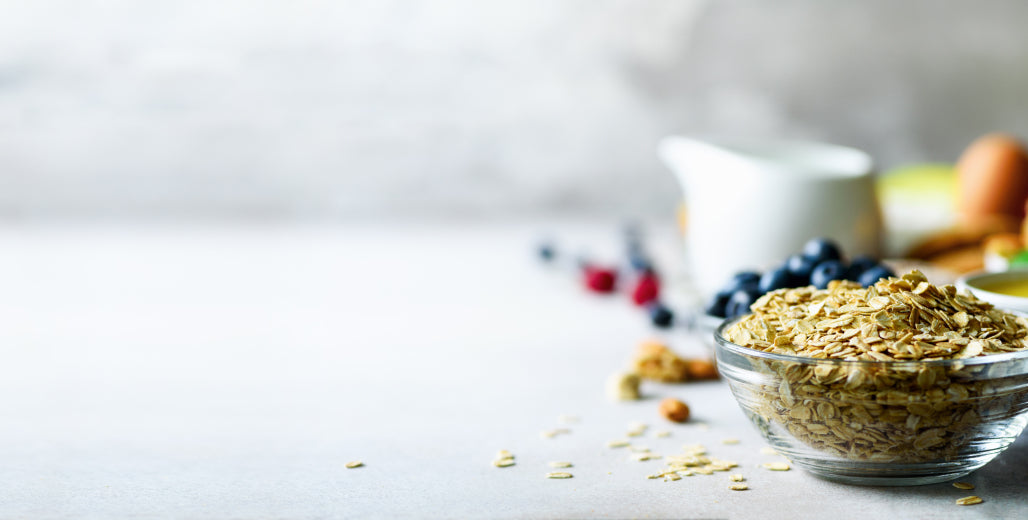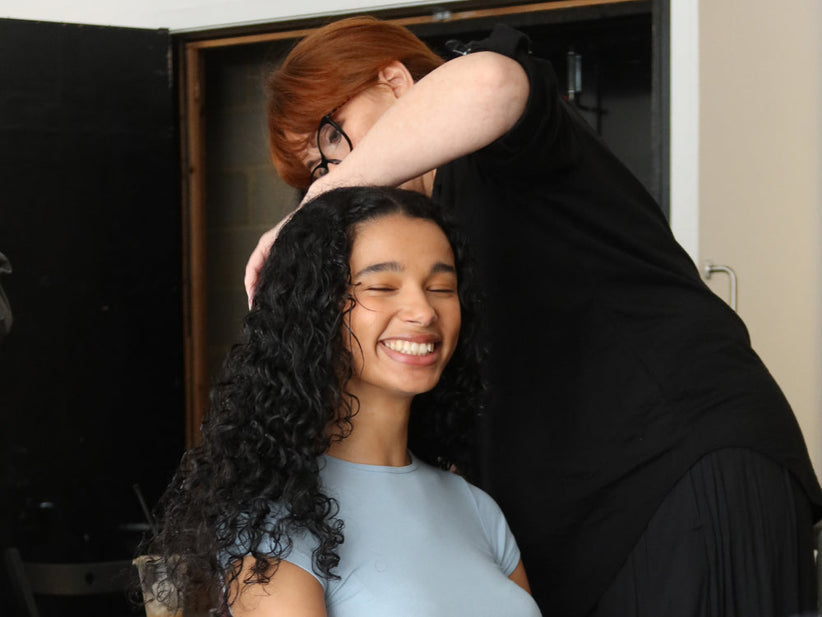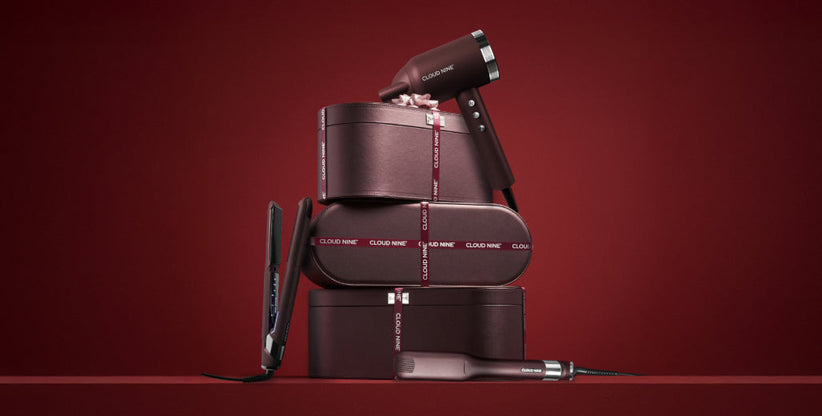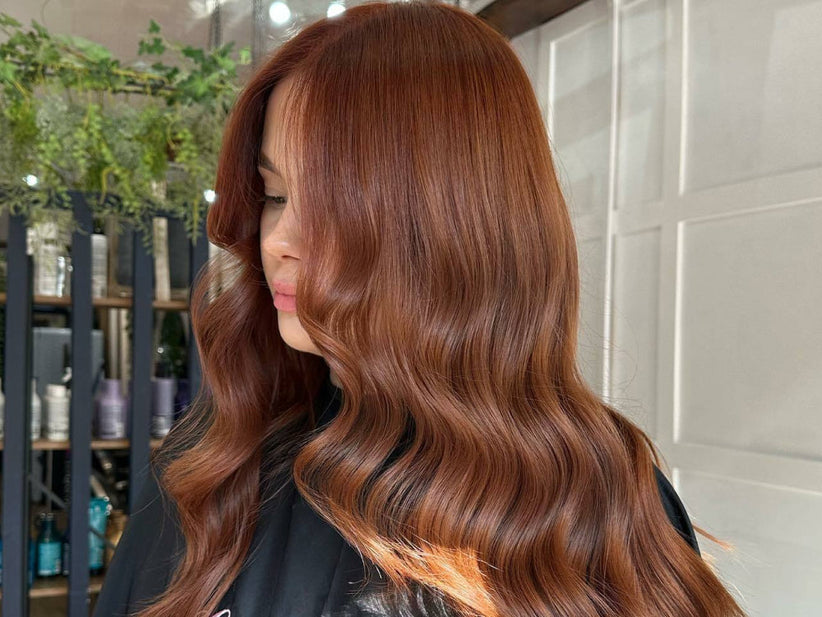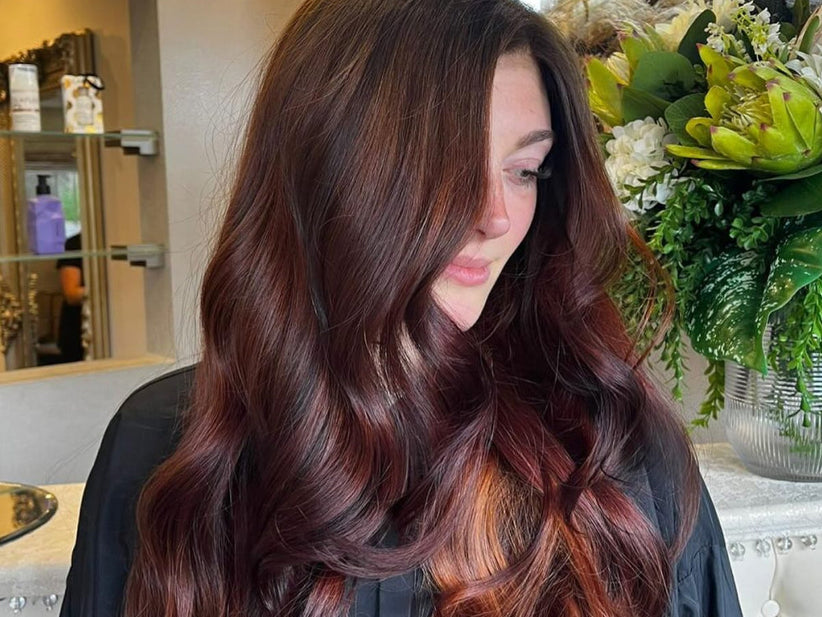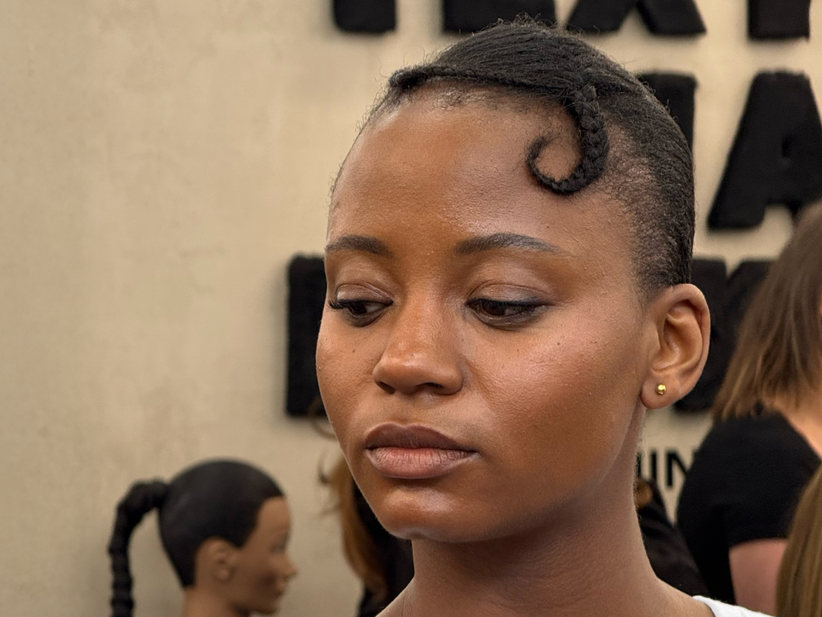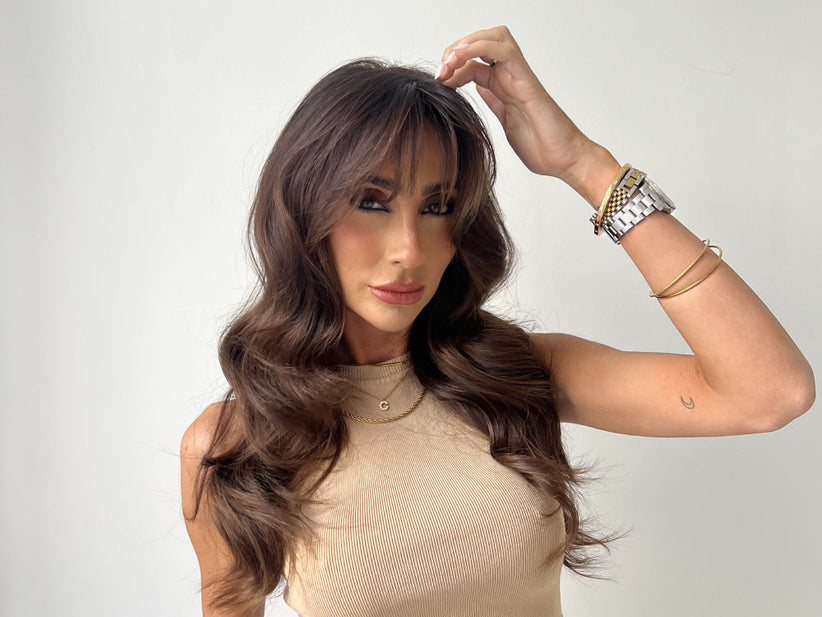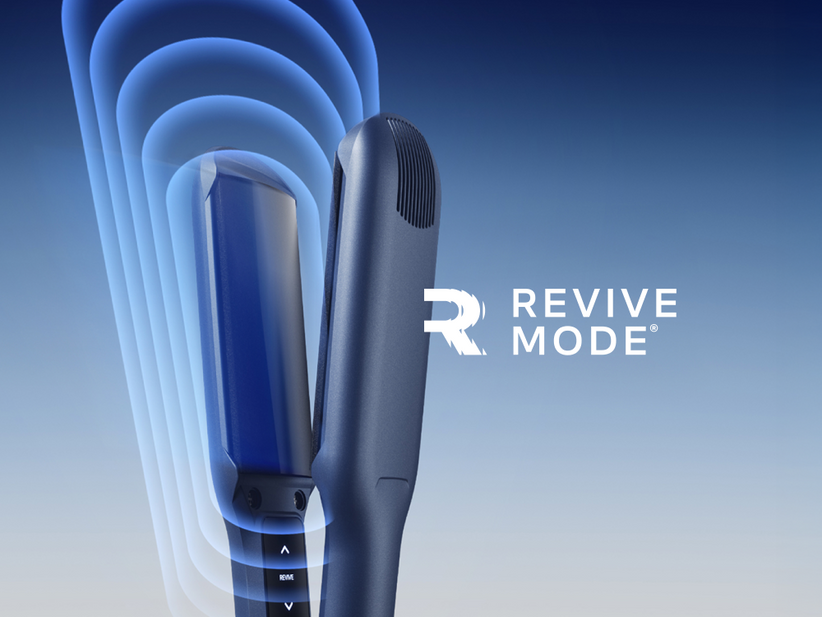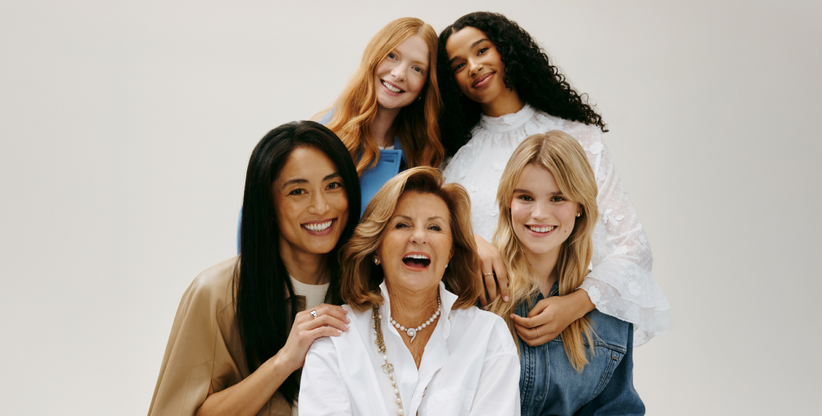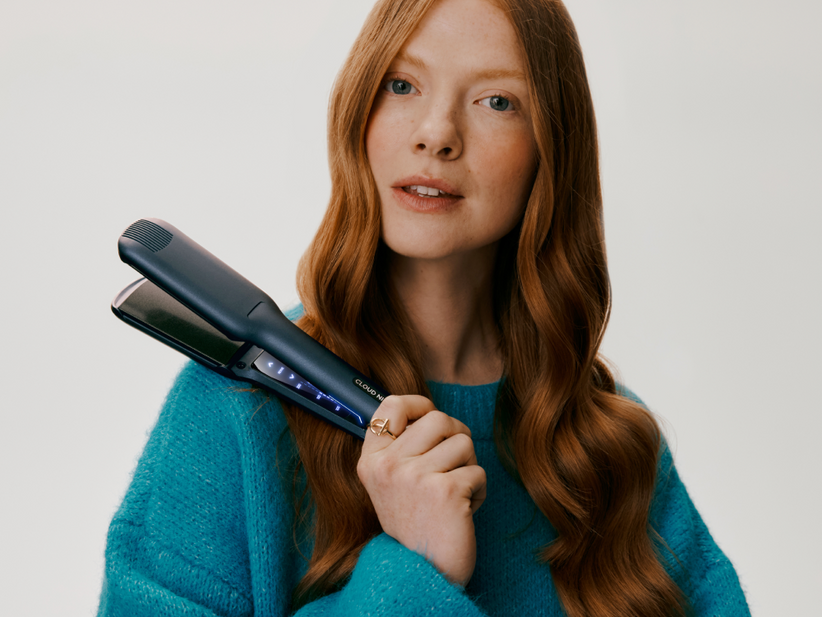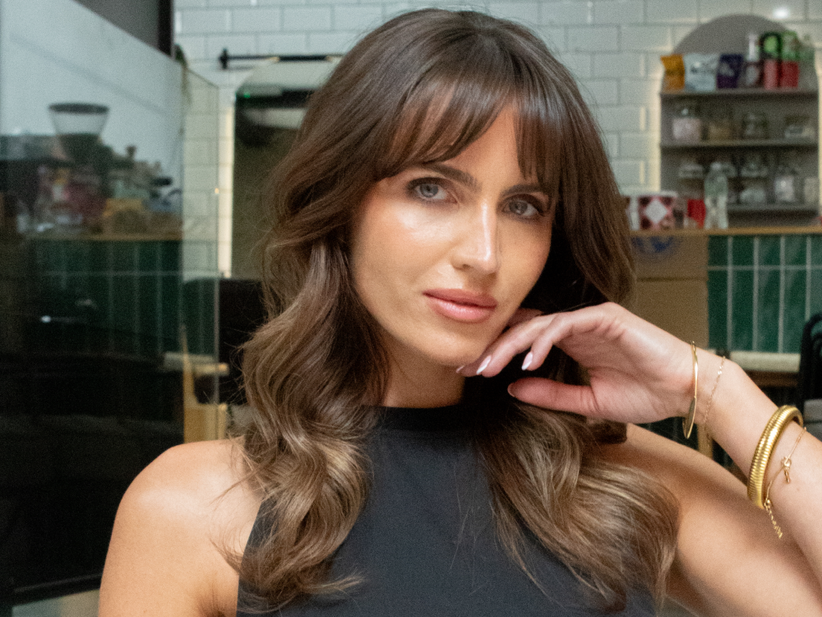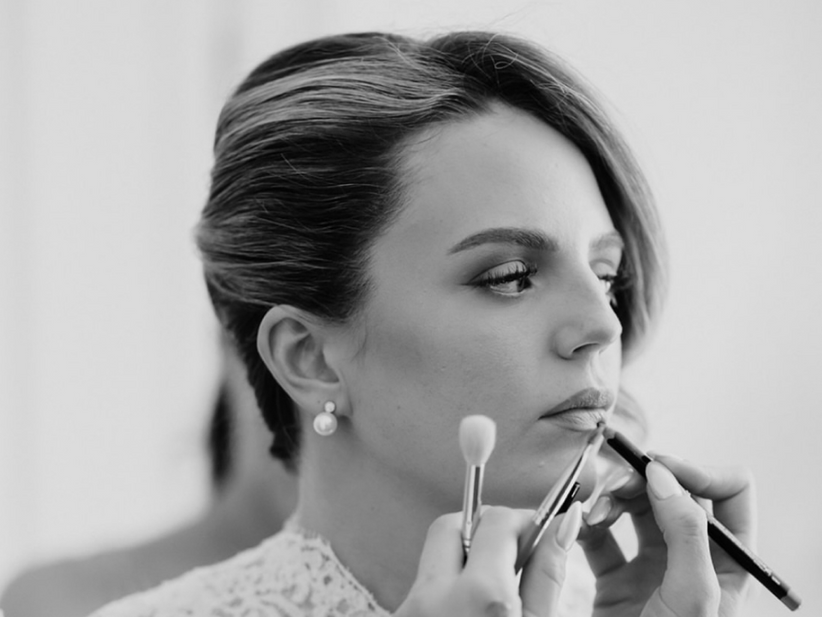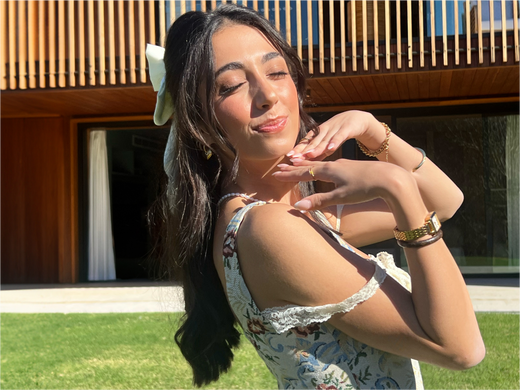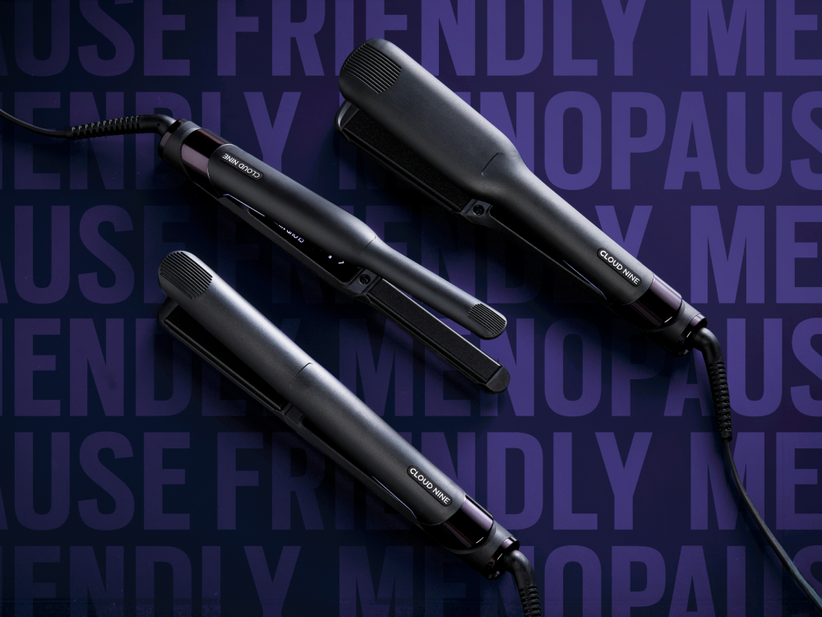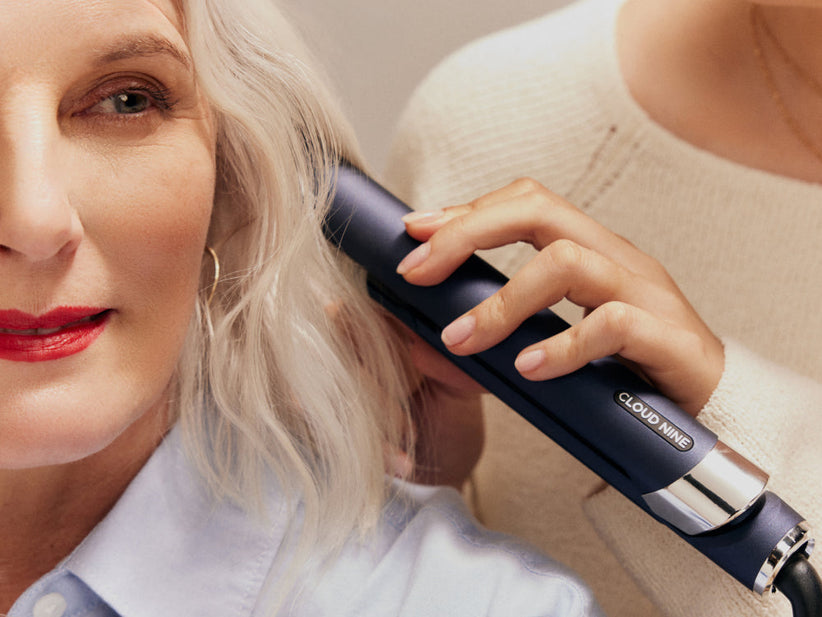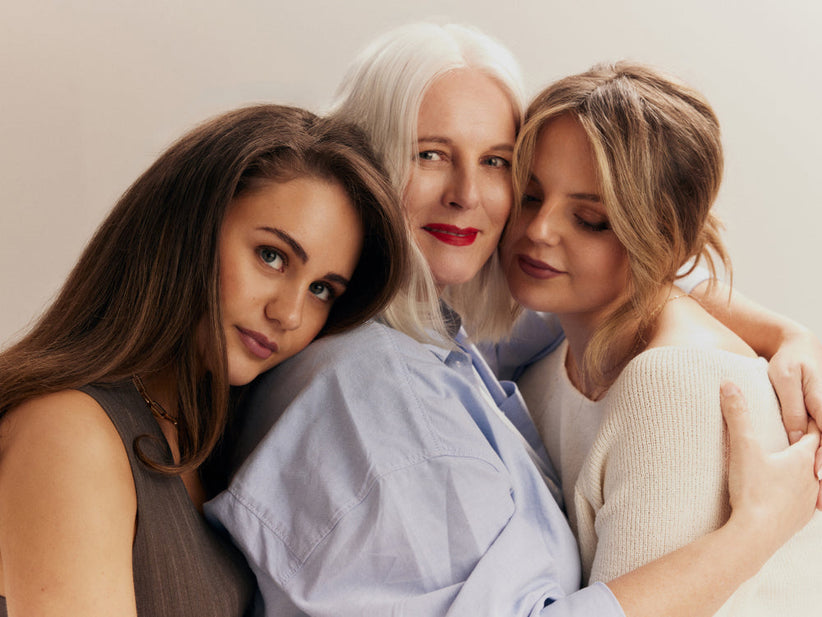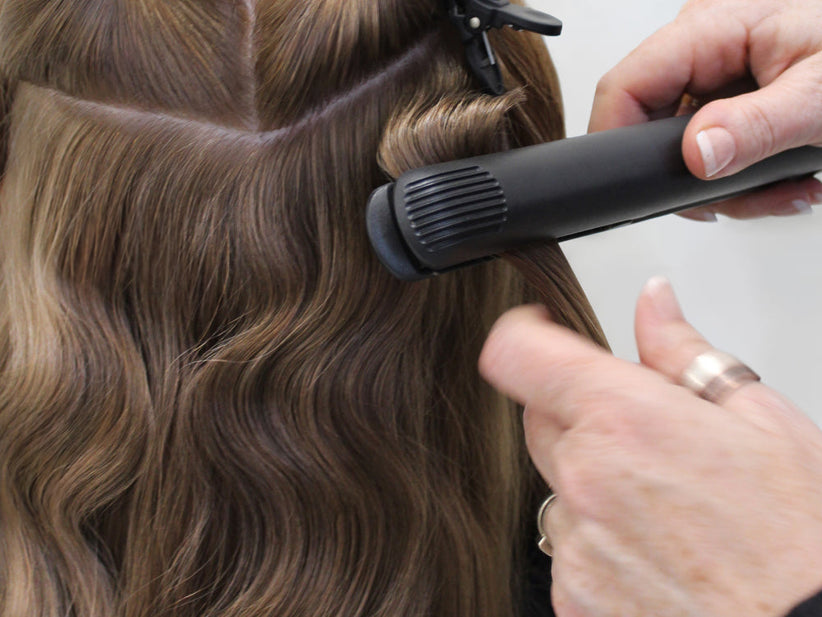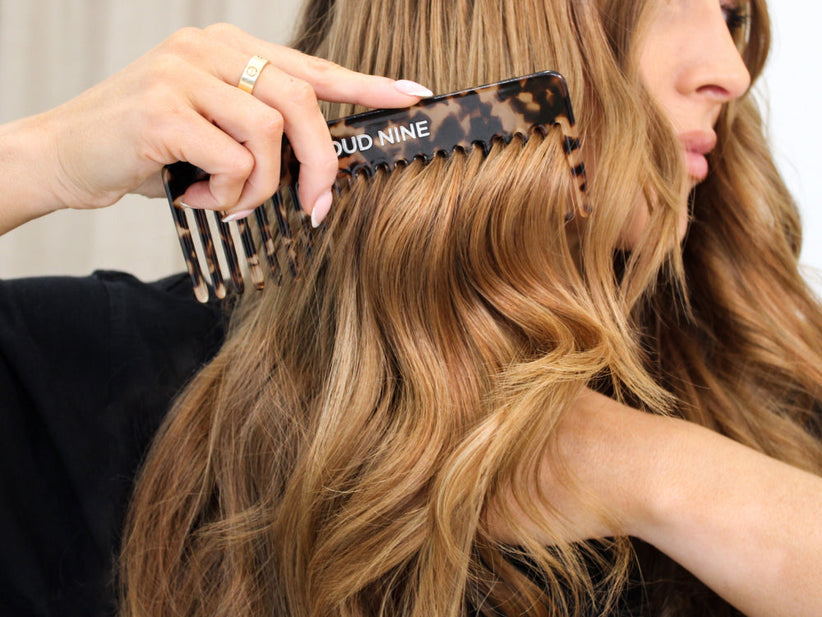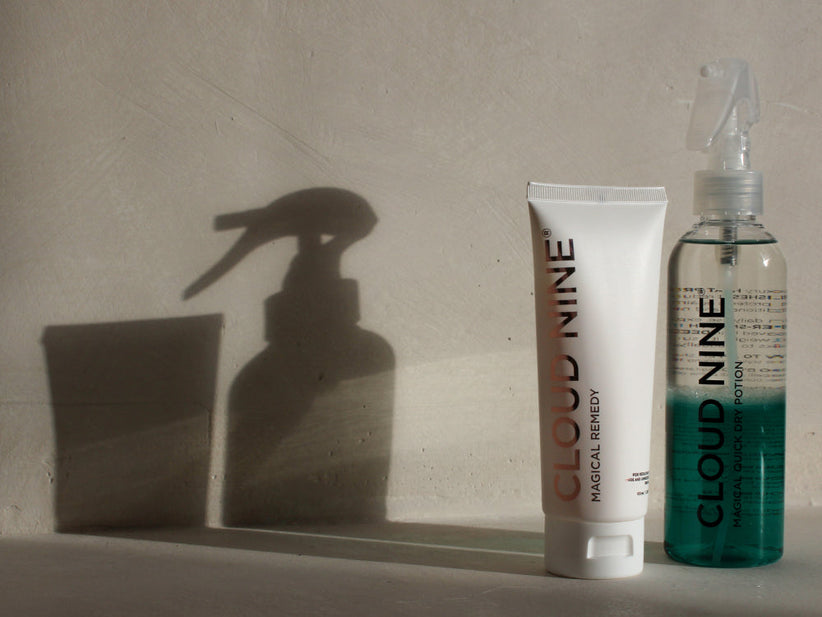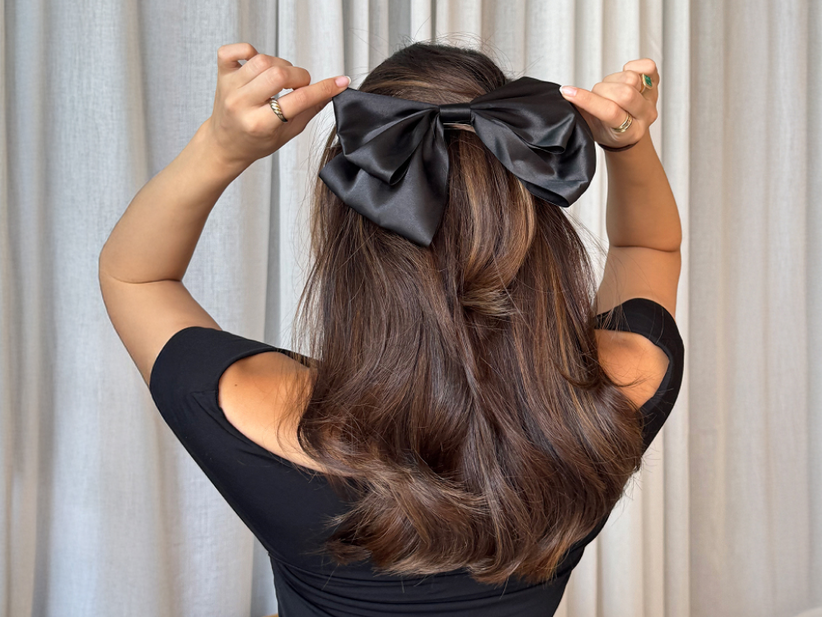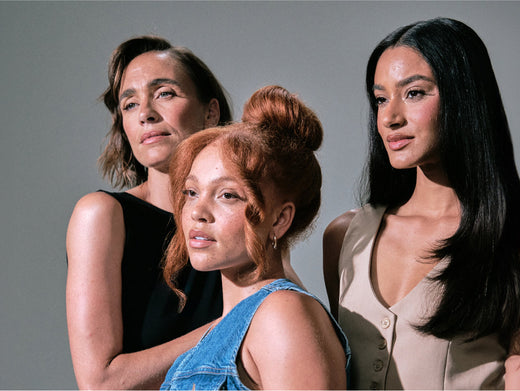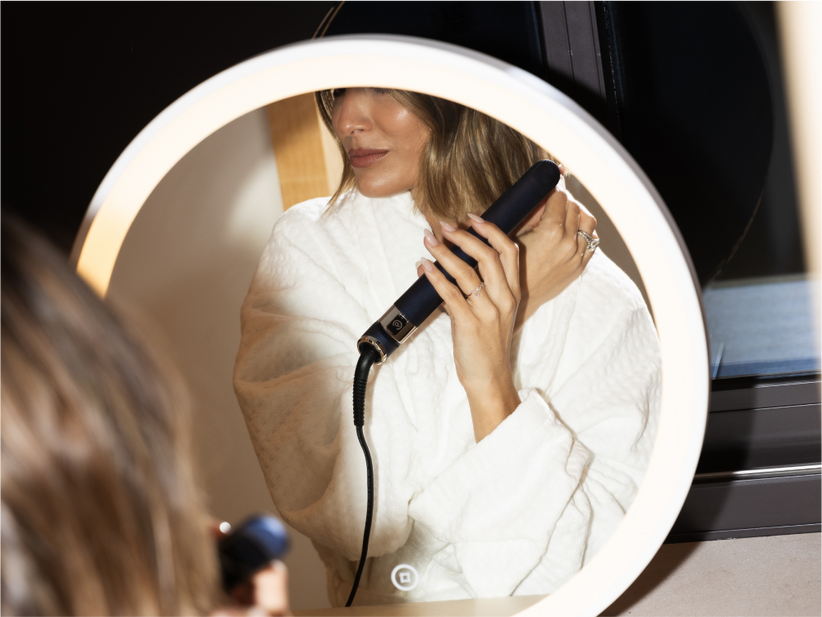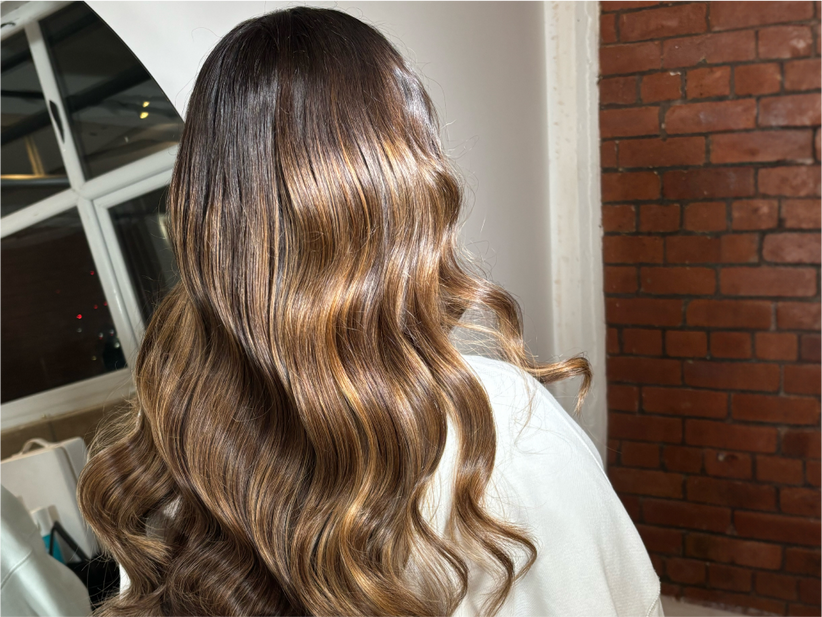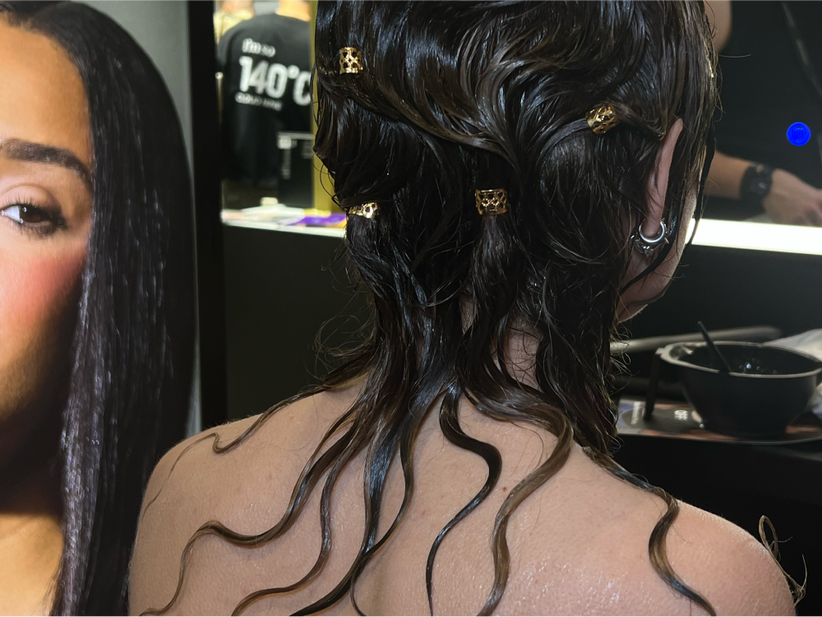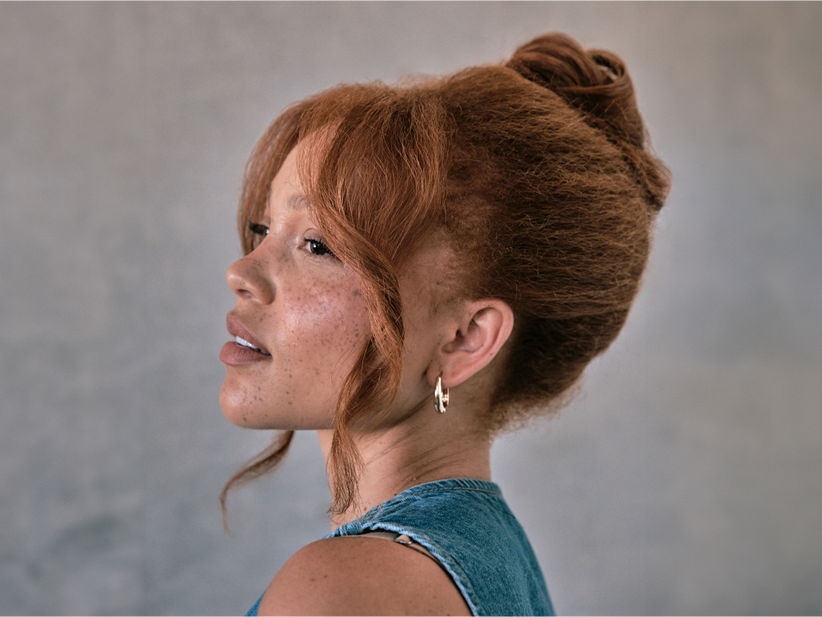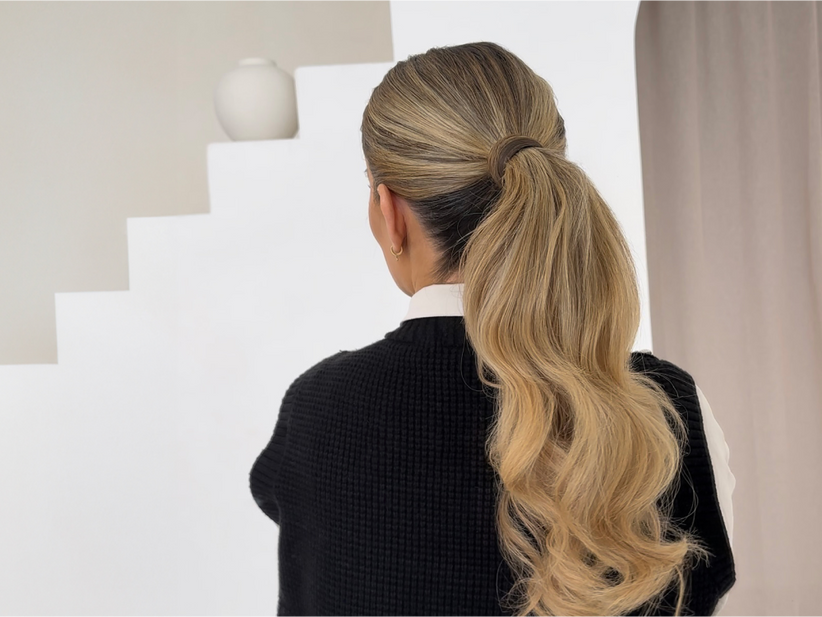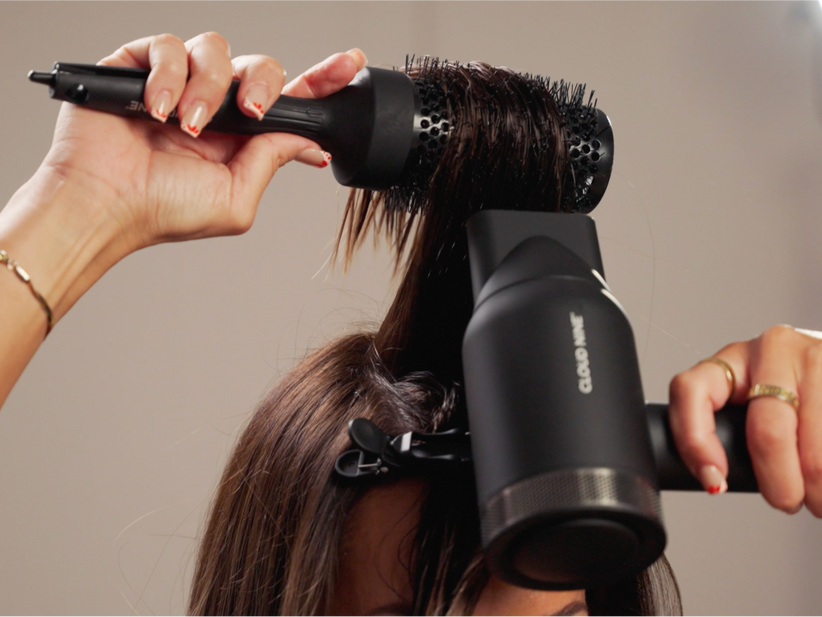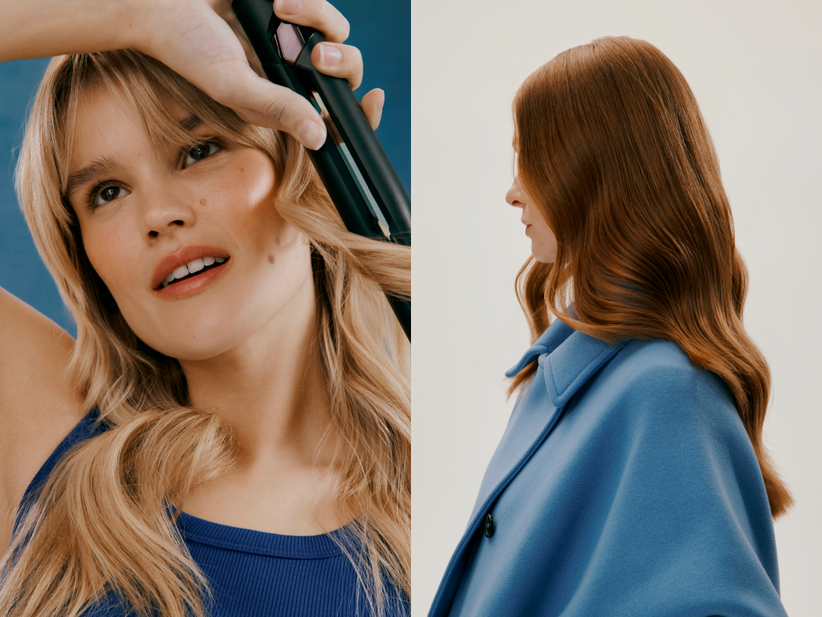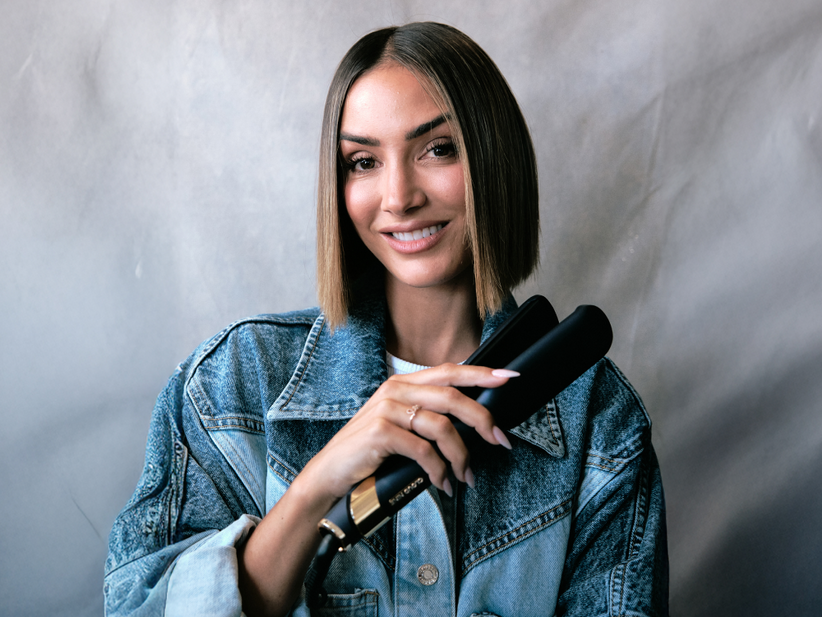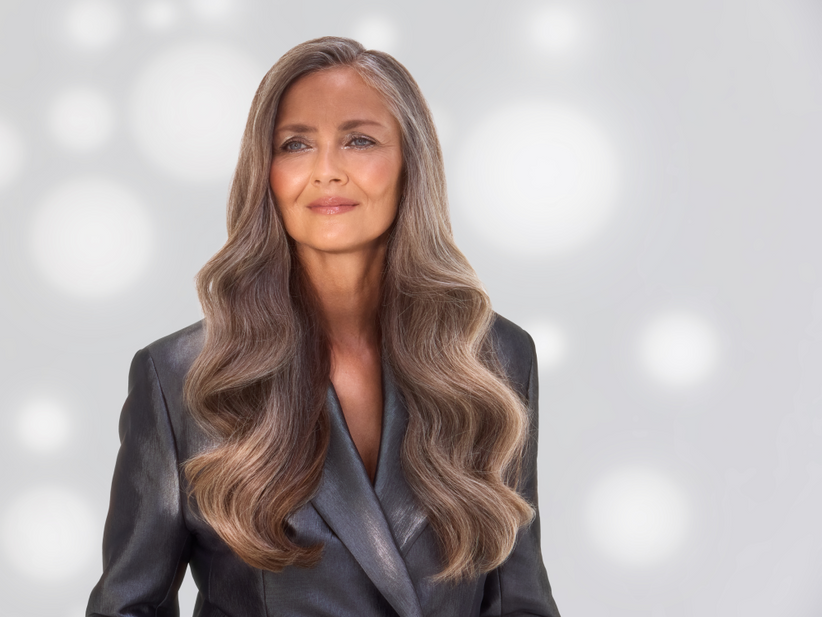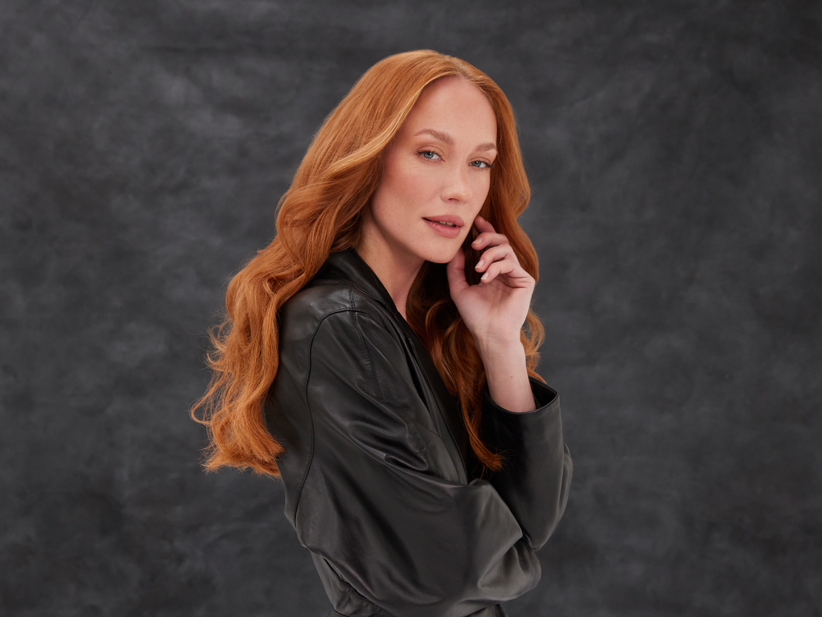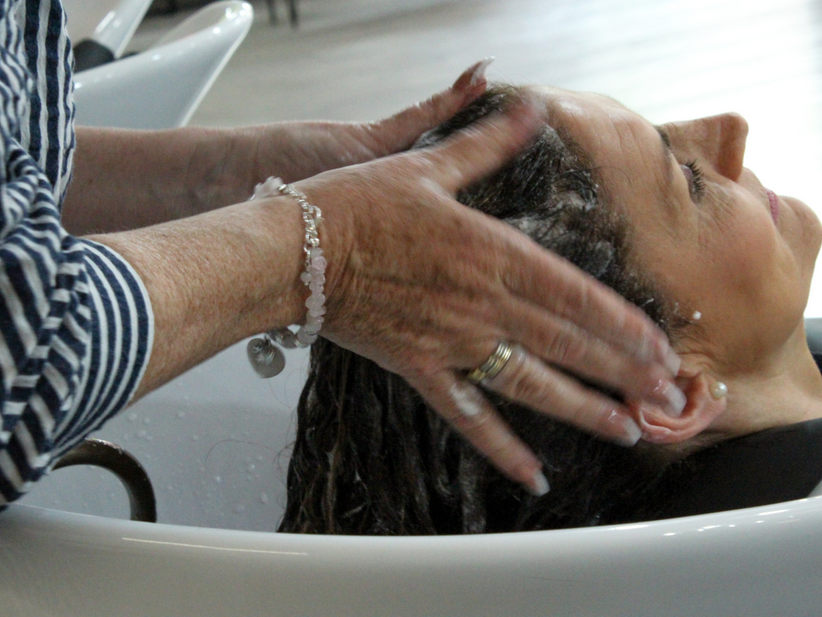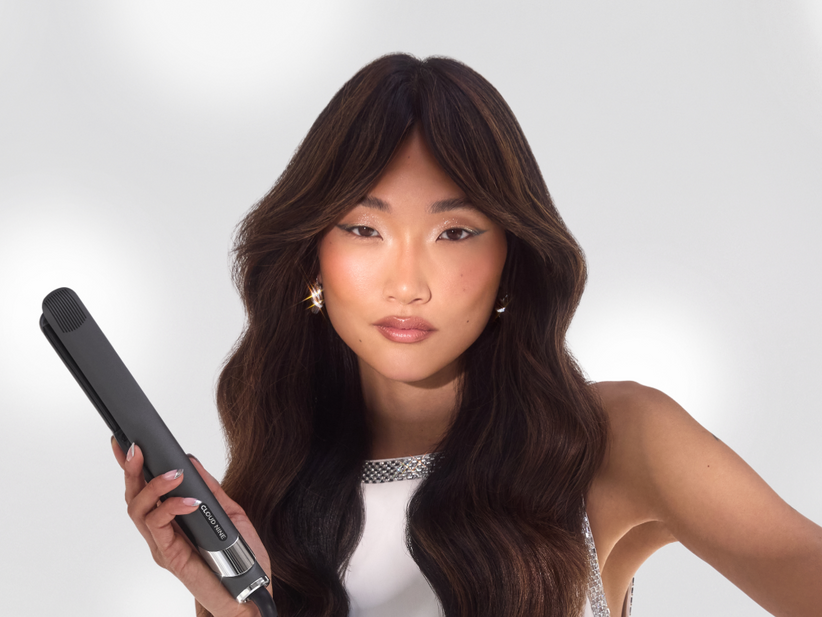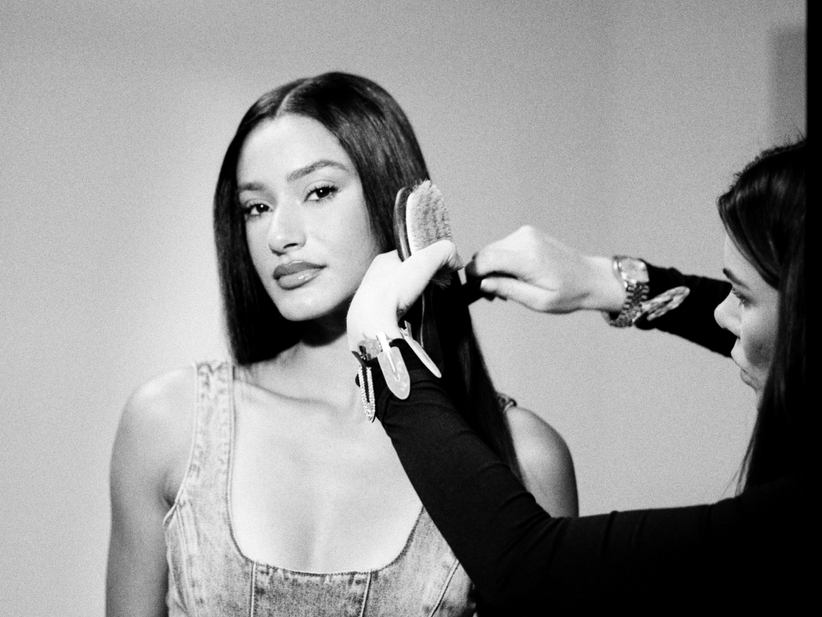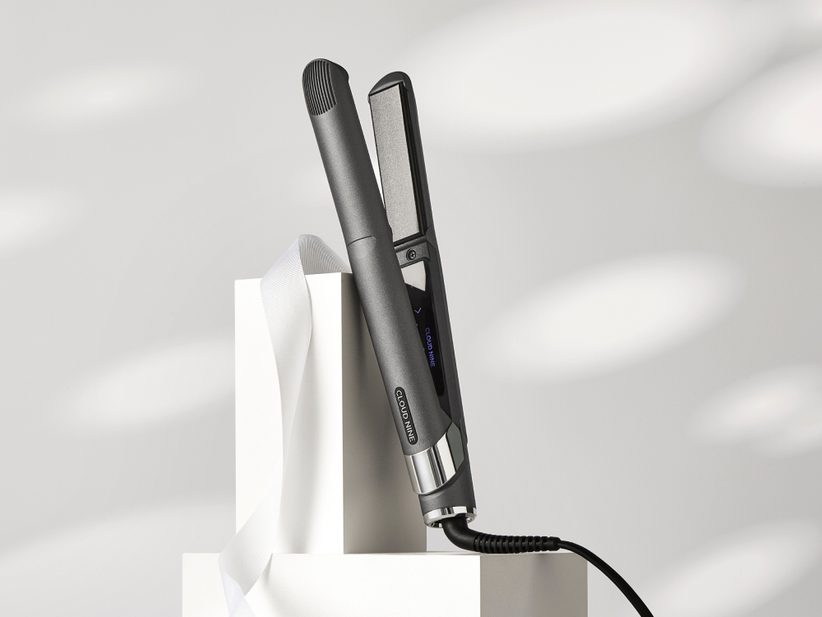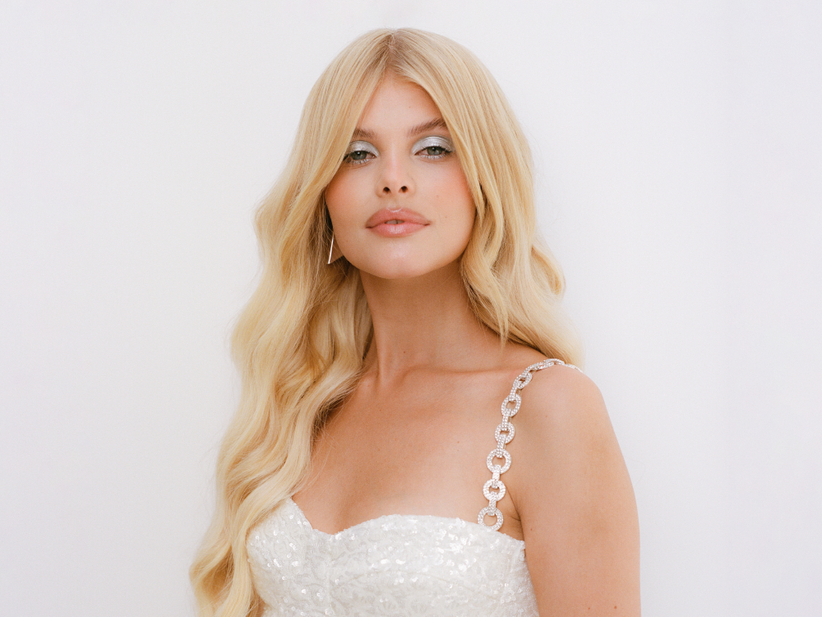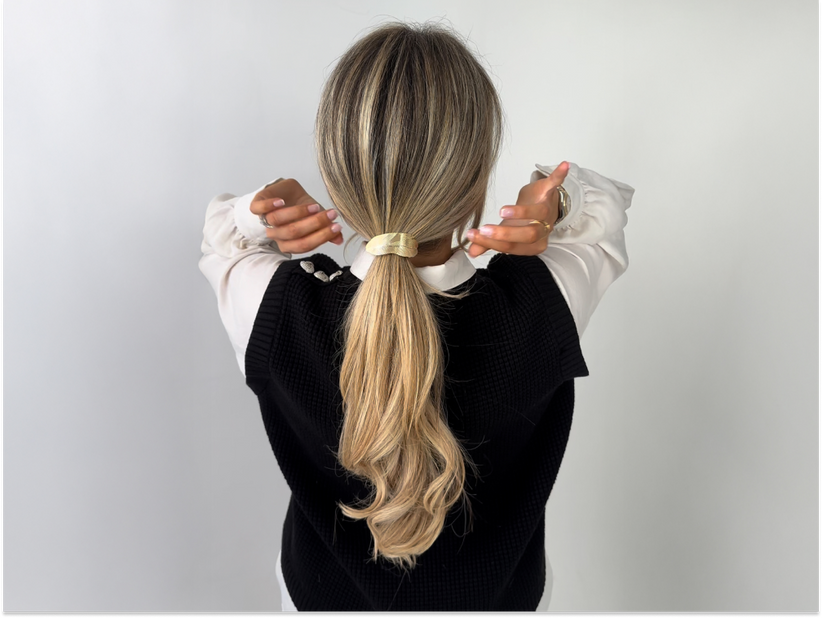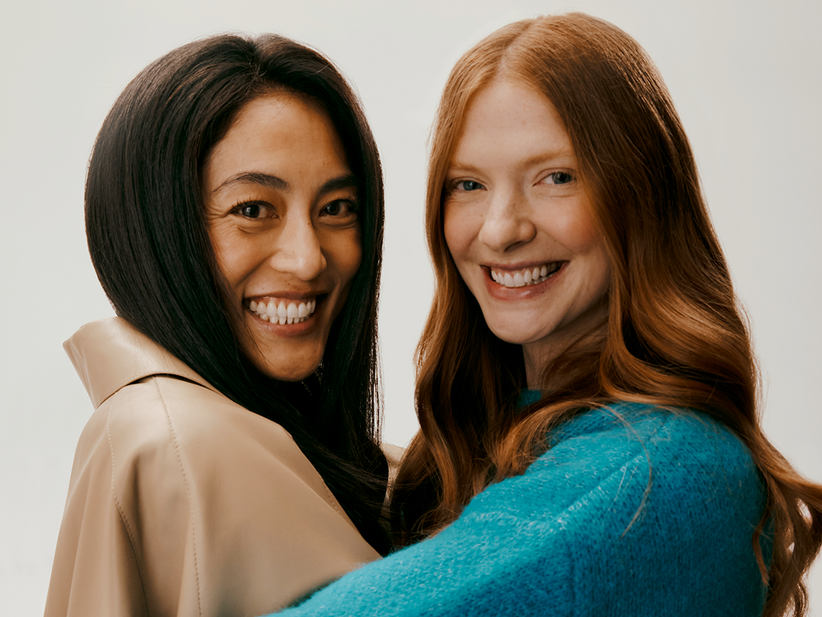The food we consume every day can be a game-changer when it comes to nurturing our hair from within. Whether you’re experiencing hair loss, or think you might in the future, we’re here to help you understand the link between nutrition and hair growth and loss. We’ll reveal the nutrients essential for maintaining strong, shiny hair, and explain the science behind healthy hair nutrition.
HAIR LOSS, HAIR GROWTH AND NUTRITION: KEY TAKEAWAYS
- The hair cycle has 4 key stages: the Anagen (growth) phase, the Catagen (transition) phase, Telogen (resting) phase and Exogen (shedding) phase.
- Hair is made of keratin, water, fats, pigments and minerals.
- Water is key for healthy hair growth – it’s recommended that we consume two litres a day.
- Key nutrients for healthy hair include proteins, carbohydrates, vitamins, minerals and fats.
- Common nutritional deficiencies that can cause hair loss include iron, zinc and biotin deficiencies.
- Too much sugar can cause hair loss, so a low-sugar diet is recommended for healthy hair.
- Too many fatty foods can lead to hair loss, so cutting down on saturated fats can lead to healthier hair.
THE BASICS OF HAIR GROWTH
The hair cycle and why it’s important
Understanding the hair cycle is key to understanding the link between hair and nutrition. We have around 100,000 hairs on our head, and each hair goes through four main phases in its lifetime:
- Anagen (growth) phase – usually lasts for several years
- Catagen (transition) phase – typically goes on for a few weeks
- Telogen (resting) phase – normally lasts for a few months
- Exogen (shedding) phase – after the telogen phase, hair can fall out and is replaced with a new hair shaft.
Learn more about the science of hormones and hair.
Each stage in the hair growth cycle has a unique role. Every strand of hair is on its own timetable, as some are growing while others are resting or shedding. Various factors like hormones, illness, stress, and age can influence how long each phase lasts. For example, hormonal changes during puberty, pregnancy, or menopause can affect hair length and thickness. Illnesses or poor nutrition can also mess with the hair cycle, leading to more shedding or slower growth.
As we get older, nutrition becomes even more important. In our late 20s, natural collagen production slows down, and by 50, it's about half of what it used to be. This drop affects not just our hair, but also our skin, nails, and gut lining. During menopause, declining oestrogen levels mean our bodies need more calcium, protein, and vitamin D. Many people don’t realise they need to tweak their diet to keep up with these changes.
What is hair made of?
At its core, hair is mostly made up of a protein called keratin, which you can also find in your skin and nails. Keratin gives your hair its strength and resilience. Alongside keratin, hair contains water, some fats, pigments (think melanin for that gorgeous hair colour), and a few minerals like iron and zinc. The exact make-up can change a bit depending on things like your hair type, texture, and the genes you inherited. Put simply, your hair is as unique as you are.
Why water is key for hair growth
Staying hydrated is a game-changer for your hair, especially if you’ve experienced hair loss. Drinking around two litres of water a day can make a real difference in how healthy and vibrant your hair looks and feels. Here’s why:
- Hair is made up of about 25% water and hair cells need water to stay strong and flexible. When your hair is well-hydrated, it’s less likely to become dry, brittle, and prone to breakage. Hydrated hair is also more elastic, which means it can stretch without snapping.
- Your scalp needs water too – a well-hydrated scalp is less likely to suffer from dryness and irritation, which can lead to dandruff and a weakened hair structure. Proper hydration helps ensure that your scalp has enough moisture to keep hair follicles healthy and functioning properly, supporting consistent hair growth.
- On a cellular level, water aids in transporting essential nutrients to your hair follicles. Nutrients like vitamins, minerals, and proteins are crucial for hair growth and maintenance. Without enough water, these nutrients can’t effectively reach your hair follicles, slowing down the growth process and impacting the overall health of your hair.
- Finally, water helps to flush out toxins from your body. When toxins build up, they can affect your hair health, making it dull and lifeless. Staying hydrated ensures that your body can efficiently remove these harmful substances, keeping your hair looking shiny and vibrant.
So, if you want to keep your hair looking its best, remember to drink up! Keeping hydrated with those two litres of water a day supports not just your overall health, but also the health and growth of your hair.
Check out our complete guide to hair hydration as part of our 9-Day Detox for more information and advice on how to keep your hair hydrated.
KEY NUTRIENTS FOR HEALTHY HAIR
Keeping your hair healthy and strong isn’t just about the right shampoo and conditioner – what you eat plays a massive role too. A healthy diet can help prevent hair loss, but also help your hair to recover if you’ve experienced it. Here’s a quick rundown of the key nutrients your hair needs to thrive.
Proteins
Think of proteins as the building blocks of your hair. Hair is mostly made of a protein called keratin. Eating enough protein ensures your hair stays strong and continues to grow, and can be found in eggs, lean meats, beans, and nuts.
Collagen
Collagen is the most abundant protein in your body, supporting hair structure and growth. It’s easier to find than you think – instead of throwing away the chicken carcass after a Sunday roast, you can rustle up a soup using bone broth or take on some skin-on chicken wings.
Carbohydrates
Complex carbohydrates provide the energy your hair needs to grow. They help in the formation of the hair structure. Whole grains, fruits, and vegetables are your best bets for healthy carbs.
Vitamins
- Vitamin A: Promotes the production of sebum, an oily substance that moisturises your scalp and keeps hair healthy. Find it in carrots, sweet potatoes, and spinach.
- Vitamin C: Helps in the production of collagen, a vital part of hair structure. It also aids in iron absorption. Citrus fruits, strawberries, and bell peppers are excellent sources.
- Vitamin D: Supports hair follicle cycling, which is crucial for new hair growth. Get it from sunlight, fortified dairy products, and fatty fish.
- Vitamin E: Provides antioxidant protection to hair follicles. Nuts, seeds, and green leafy vegetables are rich in vitamin E.
- Vitamin K: Green leafy vegetables (think kale, broccoli and spinach) are high in Vitamin K which helps transport calcium around your body for healthy cell growth.
B Vitamins
- Biotin (B7): Known as the hair growth vitamin, biotin helps prevent hair loss and promotes hair strength. Eggs, almonds, and avocados are biotin-rich.
- Niacin (B3): Improves blood circulation to the scalp, which nourishes hair follicles. You can find niacin in chicken, tuna, and mushrooms.
- Other B Vitamins: Folate (B9), B12, and B6 also play essential roles in maintaining healthy hair. Whole grains, meat, and dairy products are good sources.
Minerals
- Iron: Essential for oxygen transport to hair follicles, iron deficiency can lead to hair loss. Red meat, lentils, and spinach are iron-rich foods.
- Zinc: Crucial for tissue growth and repair, including hair. Oysters, beef, and pumpkin seeds are packed with zinc.
- Selenium: Provides antioxidant protection for hair follicles. Brazil nuts are an excellent source of selenium.
- Calcium: Plays a role in promoting hair growth by supporting hair follicle health and the transport of essential nutrients to the scalp. Calcium can be found in products like milk, cheese, and yoghurt, as well as leafy greens like kale and broccoli.
- Potassium: Helps regulate blood circulation and fluid balance, which are important for maintaining a healthy scalp environment. Foods rich in potassium include bananas, sweet potatoes, oranges, and spinach.
Fats
Essential fatty acids, like omega-3 and omega-6, are key for keeping your scalp and hair hydrated. Fatty fish like salmon, flaxseeds, and walnuts are great sources.
Ultimately, it’s best to aim for a varied diet that includes a mix of lean proteins, whole grains, fruits, vegetables, nuts, and seeds. This ensures you’re getting a wide range of nutrients to maximise your chances of shiny, healthy hair. A healthy diet will also help your hair to grow back if you’ve experienced hair loss.
Ready to put this knowledge into action? Check out our guide about how to nourish your hair from the inside out for tips and expert advice on what foods and supplements could work wonders for your hair health.
COMMON NUTRITIONAL DEFICIENCIES AND HAIR LOSS
While trimming calories might help you shed pounds, it can also lead to shedding something you’d rather keep – your hair. According to the NHS, Nutritional deficiencies are a common cause of hair loss, and restrictive, low-calorie diets can deprive your body of the essential nutrients it needs to maintain healthy hair. We’ll go through the most common deficiencies and how they can cause hair loss:
Iron deficiency anaemia
Iron is crucial for producing haemoglobin, which helps deliver oxygen to your body’s cells, including your hair follicles. When you’re low on iron, your body prioritises vital organs over hair, leading to hair shedding and thinning. Symptoms of iron deficiency anaemia include fatigue, pale skin, and noticeable hair loss. To keep your iron levels up, you might want to include red meat, spinach, lentils, and iron-fortified cereals in your diet.
Zinc deficiency
Zinc plays a vital role in DNA and RNA production, essential for normal cell division in hair follicle growth. Without enough zinc, you might notice slower hair growth and even hair loss. Zinc deficiency can also make your scalp unhealthy, leading to dandruff and other issues. Good sources of zinc include oysters, beef, pumpkin seeds, and chickpeas.
Biotin deficiency
Biotin, a B vitamin, is famous for its role in maintaining healthy hair. It helps produce keratin, the protein your hair is made of. A lack of biotin can lead to brittle, thinning hair, and even hair loss. Symptoms of deficiency include hair thinning, skin rashes, and brittle nails. You could boost your biotin intake with foods like eggs, almonds, avocados, and sweet potatoes.
Low fat diets
Essential fatty acids, particularly omega-3 and omega-6, are fundamental for maintaining a healthy scalp and hair. These fats keep your hair hydrated and give it that natural shine. When you cut out too much fat from your diet, your hair can become dry, brittle, and more prone to falling out. You might want to consume healthy fats from sources like salmon, flaxseeds, walnuts, and olive oil to keep your hair looking its best.
While low-calorie diets can be tempting for quick weight loss, they often come at the expense of essential nutrients that support hair health. If you’re considering a calorie-restricted diet, make sure it’s balanced and rich in nutrients to avoid these common deficiencies. Your hair will thank you for it.
THE LINK BETWEEN TOO MUCH SUGAR AND HAIR LOSS
High sugar intake can contribute to hair loss, especially if there’s a genetic link to hair thinning and pattern baldness. It’s recommended by the NHS that adults consume no more than 30g of free sugars a day, (roughly equivalent to 7 sugar cubes), so if we consume much more than this, we risk health issues. Here’s how sugar affects your body and disrupts the hair growth cycle.
Hormonal imbalance
Your endocrine system controls your hormones which help keep your body running smoothly, but too much sugar can throw them out of kilter. Refined sugars in processed foods and sugary drinks cause blood sugar levels to spike and crash. These fluctuations mess with hormones like insulin and androgens, which can impact hair health.
Insulin resistance
Consistently high blood sugar can lead to insulin resistance, where your cells become less responsive to insulin. This condition can boost androgen production, especially dihydrotestosterone (DHT), which can shrink hair follicles. For people prone to hair loss, too much sugar can make it worse.
Inflammation
Sugar triggers inflammation, which can disrupt the hair growth cycle and lead to shedding and thinning. It also creates free radicals that cause oxidative stress, damaging hair follicles and hampering their ability to produce healthy hair.
Nutrient deficiencies
Eating too much sugar can crowd out nutrient-rich foods. Essential nutrients like biotin, zinc, iron, and vitamins A, C, and E are vital for hair health. A diet high in sugar and low in these nutrients weakens hair strands and can lead to hair loss.
Tip: The NHS recommends a vegetable-rich diet. Their high fibre content and low glycaemic index slow down sugar digestion, leading to steadier blood sugar levels. Vegetables also increase that ‘full up’ feeling, reducing overall calorie and sugar intake. This makes them a great choice for blood sugar control and overall health.
THE LINK BETWEEN TOO MUCH FAT AND HAIR LOSS
We've all heard about the good and bad fats. Healthy fats like avocado, olive oil, and salmon come with a host of health benefits, while unhealthy fats from red meat and fried foods can up the risk of heart disease and certain cancers. But did you know that eating too much fat might also lead to hair loss?
Fatty foods can cause inflammation which can affect hair-follicle stem cells – the long-lived cells responsible for hair growth. Normally, these cells activate and replenish themselves during the hair growth cycle, but a high-fat diet throws a spanner in the works. It introduces inflammatory molecules into the body, causing oxidative stress that blocks hair follicle regeneration, leading to smaller follicles and faster hair loss.
Give your stem cells the best chance of producing healthy hair by cutting back on baked goods, cured meats, and fried foods, and loading up on whole foods rich in vitamins and minerals.
UNDERSTANDING HOW NUTRITION IMPACTS HAIR LOSS AND GROWTH: FREQUENTLY ASKED QUESTIONS
How long does it take to see improvements in hair health with dietary changes?
Generally, it can take several weeks to months before noticeable changes occur. Factors such as the extent of nutritional deficiencies, the quality of your diet, and your body's response to dietary changes all influence how long it takes. Consistency is key – stick to a balanced diet rich in essential nutrients, and over time, you should start to see improvements in the strength, shine, and overall health of your hair.
What nutrients keep hair healthy?
A variety of nutrients play a role in maintaining healthy hair, including protein, iron, zinc, vitamins (such as A, C, D, and B-complex vitamins), omega-3 fatty acids, and antioxidants.
Can poor nutrition cause hair loss?
Poor nutrition can contribute to hair loss. Deficiencies in essential nutrients like protein, iron, and certain vitamins can lead to weakened hair follicles and hair loss.
Can nutrition help address specific types of hair loss, such as hereditary baldness or alopecia?
Nutrition can help to manage hereditary baldness and alopecia, though it's not a standalone solution. A balanced diet rich in nutrients like biotin, zinc, iron, and vitamins A, C, and E may slow hair loss. But consult your doctor or nutritionist for a personalised treatment plan.
What foods speed up hair growth?
Foods that promote hair growth include those rich in vitamins, minerals, and proteins. Incorporate foods like eggs, berries, spinach, fatty fish (like salmon), nuts and seeds, sweet potatoes, avocados, and beans into your diet. These provide key nutrients such as biotin, vitamin E, iron, zinc, and omega-3 fatty acids, which support healthy hair growth. Also, make sure you're eating enough protein, as hair is mainly made of protein.
Can you reverse hair loss from high sugar?
The good news is that hair loss from high sugar intake can be reversed by cutting down on sugar. Here are some practical tips:
- Reduce added sugar: Limit sugary foods, drinks, and processed snacks. Choose whole, nutrient-rich foods instead.
- Read food labels: You’ll find nutritional info on most product labels. Some go the extra mile with colour-coded fronts, indicating if the food is high (red), medium (amber), or low (green) in fat, saturated fat, sugars, and salt. The more green on the label, the healthier the choice.
- Choose complex carbs: Whole grains, fruits, and vegetables release sugar slowly, preventing blood sugar spikes.
- Try natural sweeteners: Instead of sugar, use honey, maple syrup, or a sweetener in moderation to satisfy your sweet tooth.
By understanding the relationship between nutrition and hair health, we can make informed choices to support our hair. Remember, a balanced diet rich in essential nutrients, along with healthy lifestyle habits, is key. By putting your nutrition first, you're not just investing in healthier hair, but also in your overall wellbeing. If you have concerns about hair loss, chat to your hairdresser or GP.
Check out our guide on how to nourish your hair from the inside out for tips on how to eat the right foods for your healthy, shiny, unstoppable hair.
Join our growing hair community on our socials by heading to TikTok, Instagram or Facebook.


